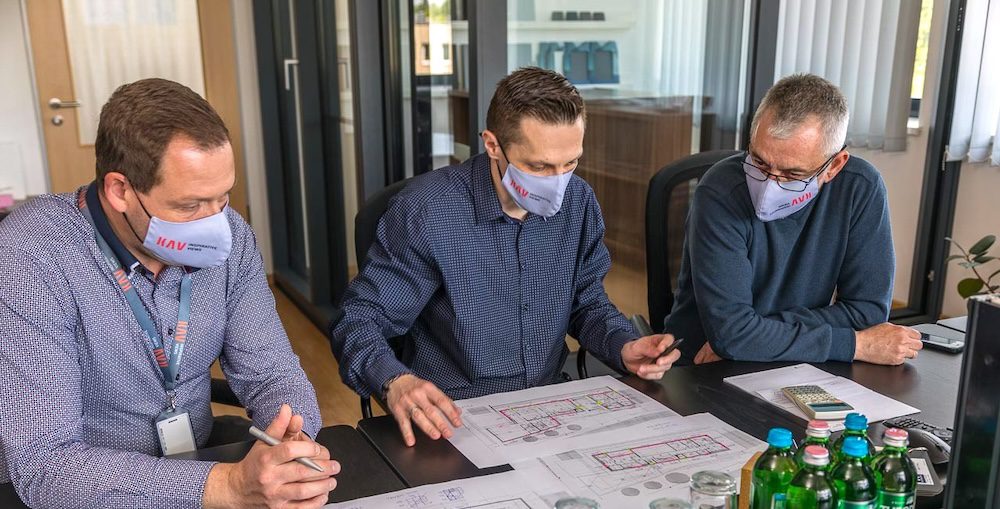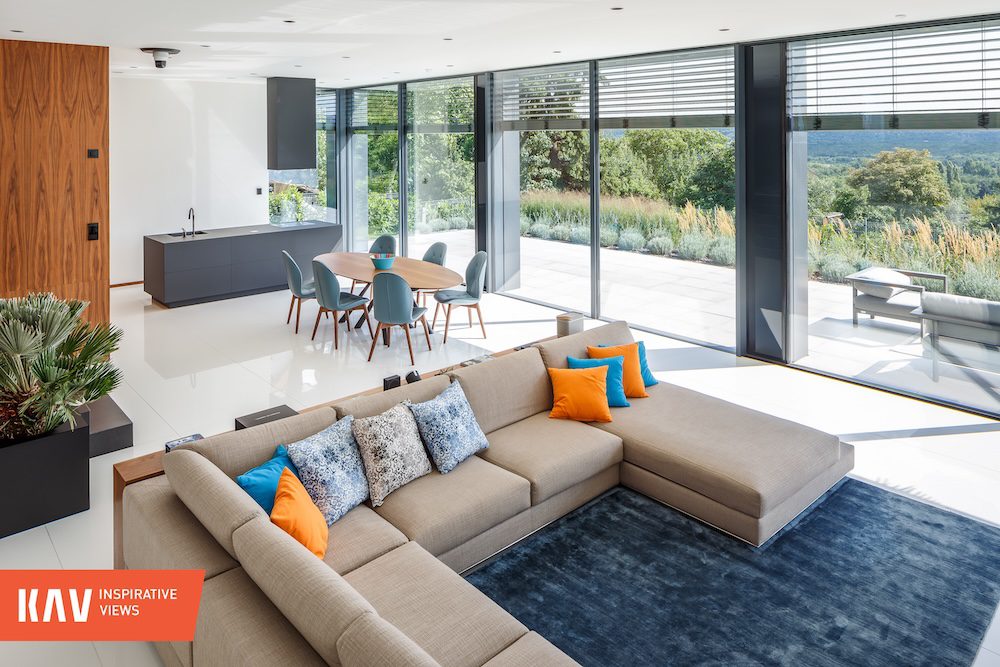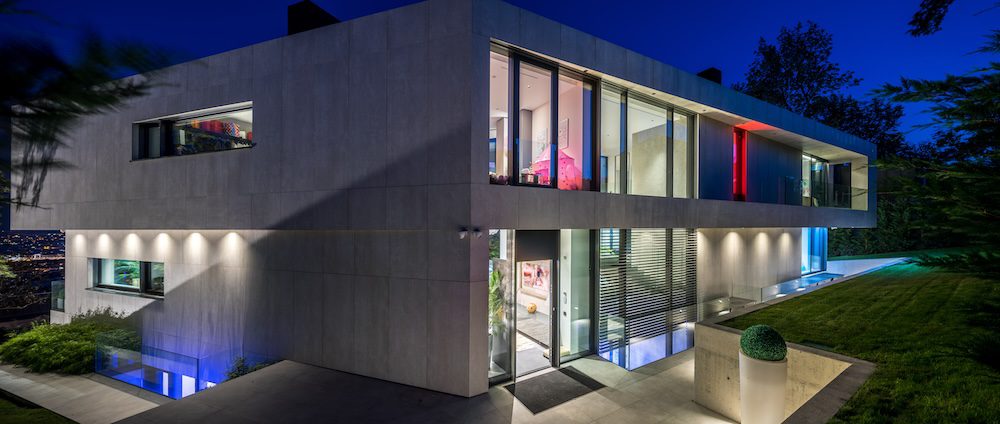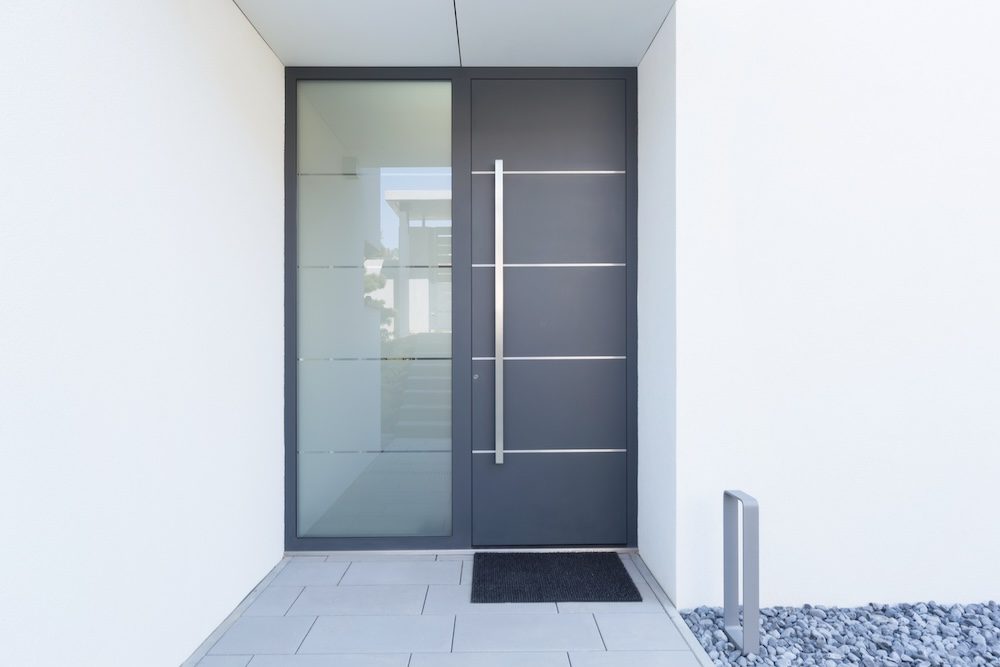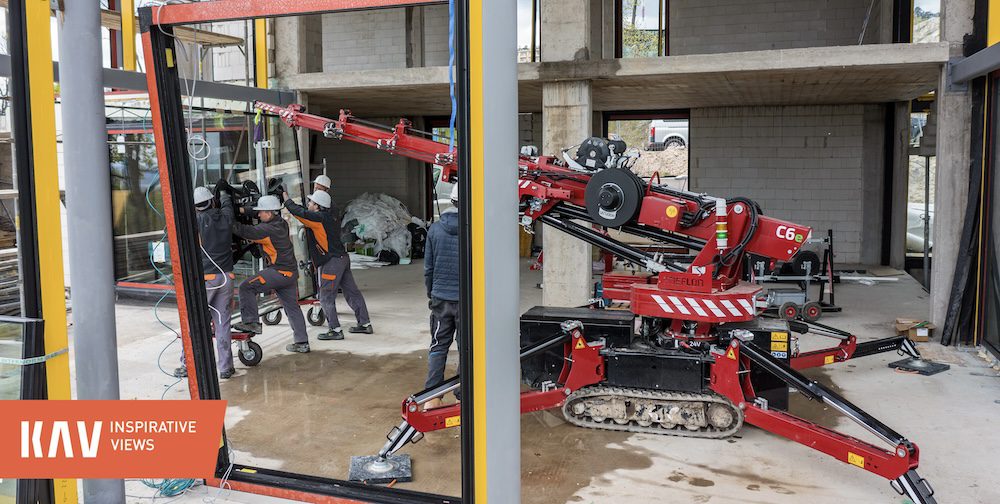With unique windows to Norway

Aluminium windows and doors also play a prominent role in Norwegian architecture, not only in public construction, but also in residential buildings and condominium investments. The long-term goal of KAV is, after Iceland, to gain experience in Norway, so it applied for admission to the Hungarian-Norwegian Chamber of Commerce (MNKK). We talked about the possibilities with the founder of the chamber, Klára Jankovics, and Beatrix Kosztyi, foreign economic attaché, the secretary-general of the chamber.
What kind of need did the chamber’s idea come from?
Klára Jankovics: When applying for the position of foreign economic attaché in Oslo in 2015, the candidates also had to develop a professional concept, in which they had to explain the ideas and objectives along which they would like to perform this job. Studying bilateral trade relations, I was surprised to find that there is no organisation that represents the companies in the interested countries and represents interests and business development, which is otherwise important in the field of bilateral business, trade and investment relations, which is usually called a chamber or business club. Such a chamber has traditionally been an effective tool in the revitalisation of bilateral economic relations at both macro and micro levels, so I thought that its establishment could be a milestone in the development of Hungarian-Norwegian trade relations.
The needs assessment carried out by the competent authorities on some companies that determine bilateral trade (e.g. Telenor, Vajda Papír, Budapest Klinikken, Comrod, etc.) also confirmed that the establishment of the Hungarian-Norwegian Chamber of Commerce had become timely. This finally took place at the end of 2016 with the participation of 11 founding member companies, the number of which now exceeds 30.
Why should a Hungarian company think about the Norwegian market?
Beatrix Kosztyi: Because it is a reliable and predictable market with high quality expectations. However, in order for someone to enter the Norwegian market, you have to be very persistent, because Norwegians, – although they present themselves as open, are still closed in some respects. If they already have a good supplier or a proven method, it will be difficult for them to depart from it. Companies have to fight for new opportunities, and few are able to do so, because many give up at the first hurdle. Those who persevere, on the other hand, have a future in the market, and their investment can pay off. But it definitely requires long-term thinking and building from companies.
J.K.: I can only confirm this. Norwegians are quite open and – especially at the level of words – transparent, which they are also very proud of. At the same time, they are very loyal to Norwegian businesses, working primarily with companies from their own country, for which, of course, there are often underlying linguistic considerations.
Personal contacts, recommendations and references often play a role in relationship building. But a good experience, professionalism and preparedness gained during a face-to-face business meeting can make a positive impression on the partner. So, for example, following a roadshow organised by the MNKK in the northern cities of Norway in addition to the capital over the past year, the company, which was introduced last year, was also invited to take part in a tender launched this year by the municipality of Bodo, in charge of urban development. In a short time, the Hungarian company was successfully brought together with a Norwegian prime contractor, as a result of which they submitted their tenders for the public procurement procedure representing a value of approximately NOK 7 million. This also shows that there is interest from Norwegian companies, but only convincing, competent and well-referenced Hungarian partners with good English language skills can expect a favourable reception.
However, it is to be expected that hard-working, thorough preparatory work will only arouse the interest of Norwegian partners. In our experience, it is not uncommon to have to send 2-300 invitations, even several times, and then inquire via the phone for any event to have 25 to 30 people / companies attending the event! So, already at the preparation phase, it is worth focusing on editing a special, attention-grabbing invitation that is sure to trigger interest, because, for example, hundreds of happening events take place in Oslo every week! Continuous event dumping is to be expected at all times of the year, so companies choose very carefully which one to participate in.
What obstacles might emerge; to what extent is the operation of the market different?
K.B.: First of all, you need to be aware of the fact that Norway is not a member of the European Union, but it is a member of the European Economic Area. This fact almost immediately causes many Hungarian entrepreneurs to back down due to the specific import regulations. The market is a monopolistic market; cost levels are high and Norwegians pursue a protectionist trade policy in many respects. It is precisely because of the above that if one targets the Scandinavian markets, what certainly first comes to his mind is Denmark, then Sweden, Finland, and Norway just last.
The Norwegian authorities impose customs duties on many products, mainly agricultural and processed food products, although there are also seasonal duties and tariff quotas. Products produced by their own industry and agriculture belong to the preferred category and so, for example, a duty of up to 400% is possible for imported cheese, which can be an insurmountable obstacle for a smaller Hungarian SME or family business. In addition, in many cases it is advisable to involve an intermediate Norwegian party, an importer, who registers the products, arranges the import formalities, and also organises access to retail chains and logistics.
In the case of other industrial products, lower duties or zero duties can be expected. In the case of aluminium doors and windows, for example, there is no duty; only VAT of 25%, which can be positive for KAV. It is also important to be aware that, below a certain threshold, tenders are only published in Norwegian, so translation requires extra time and cost.
For which Hungarian companies is it worth thinking about entering the Norwegian market?
J.K.: I would recommend it primarily to companies that can produce high added value, and want to transfer intellectual knowledge to their Norwegian partner. I am thinking of the field of informatics, where we can compete with rival Norwegian companies competitively with our engineering fees.
There is a great deal of interest in construction capacity and construction work. There would also be a need for design work, but there were already examples of Hungarians participating in hotel construction. Other priority areas are medicine, telemedicine, dentistry, higher education and scientific relations. If we bring non-intellectual capacity to Norway, it is worth examining the import restrictions, tariffs, the need for official permits etc. for the product in question before entering the market.
Why do you think that KAV is a company worth thinking about in the Norwegian market?
J.K. Norway’s wealth is due to the boom in large-scale oil and gas production that began in the 1970s, which has led to a significant decline in exports of former traditional products (fish, timber, etc.). At the same time, the crisis of 2008 highlighted the disadvantages of a one-legged economy and strong governmental steps were taken towards diversification, the development of their built environment, and the support of innovative concepts and solutions.
A number of construction investments are being implemented, and not only new ones are being built, but also existing buildings are being continuously upgraded to meet appropriate environmental standards. These investments are completely public, and they are constantly looking for foreign partners. Here it is important to mention that the traditionally present Baltic and Polish competition is significant. Polish companies are primarily present in the construction industry, but they have moved strongly towards commercial rather than modern, design-based and innovative solutions.
The Norwegian market holds great potential for a company with more advanced technology, such as KAV, which produces high-tech products. Recently, for instance there was an inquiry at the chamber for companies manufacturing custom doors and windows, looking for a supplier for the complete aluminium window and door structures of a condominium. This opportunity, for example, wasn’t advertised; they just visited the chamber thinking that they could order aluminium windows and doors from Hungary at a better price. In addition, the Icelandic Marriott Hotel is a very good reference for KAV, which is worth highlighting in a tender or when a partner meeting is held.
K.B.: The above is also confirmed, for example, by how I found KAV.
MNKK also deals with Iceland, and when reviewing Icelandic corporate affairs, I was surprised to find that there are no more than two or three Hungarian players present in Iceland, which is also not a member of the EU, only of the EEA. Although Iceland is far away, it is small in terms of population, but it is still a significant market due to its tourism, which needs imports of almost everything and is therefore easier to access in terms of tariffs. That is why I consider it important to develop bilateral trade relations with Iceland as well. This is how I started researching Hungarian companies that have already worked in Iceland, have local knowledge and experience, but have not yet contacted us. This is how I found KAV, whose Icelandic project is also a very good reference for knocking at the door in Norway as well.
Working together with KAV is a real win-win relationship, as they can open up to Norway through our network of contacts and we can move forward in Iceland with their help. We are talking about a very innovative company, and aluminium doors and windows are also in demand in Norway. In Oslo, for example, there will be a lot of investment, or it is already underway, where such architectural solutions are used. In these cases, KAV can be a potential partner. I’m not saying there’s no competition, but they’re building hotels, office buildings and residential buildings where KAV’s custom-made door and window solutions are sure to come into play.
We help Hungarian companies with partner searches. So, in the case of KAV, we try to recommend them to architectural offices and companies, where there are buildings under construction where custom doors, aluminium windows and aluminium entrance door solutions belonging to KAV’s profile, can be considered. And if they come out to negotiate, we can prepare the meetings for them, we can also provide space; that is, we also support them in logistics. Norway is an important market opportunity for a KAV-type company, as not everyone undertakes such a challenge.
MoreNews



